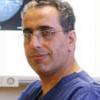A study of over 50 thousand women in England has found that around half of women undergoing breast-conserving surgery for either isolated invasive breast cancer or isolated ductal carcinoma in situ (DCIS) went on to have further surgery. The majority of women in England (58%) suffering from breast cancer undergo breast-conserving surgery, also known as lumpectomy, to prevent the removal of the whole breast by removing just the tumour and some surrounding tissue.
This new report, conducted by the London School  of Hygiene and Tropical Medicine and published in the British Medical Journal discovered that women with DCIS had a one in three chance of the cancer recurring with the need for a further operation. This is due to the difficulty in identifying tumours in this pre-cancerous form of breast disease. The authors emphasised, however, that breast-conserving surgery is as effective as mastectomy when combined with radiotherapy and that older women are less likely to require, or want, a repeat operation.
of Hygiene and Tropical Medicine and published in the British Medical Journal discovered that women with DCIS had a one in three chance of the cancer recurring with the need for a further operation. This is due to the difficulty in identifying tumours in this pre-cancerous form of breast disease. The authors emphasised, however, that breast-conserving surgery is as effective as mastectomy when combined with radiotherapy and that older women are less likely to require, or want, a repeat operation.
Forty per cent of follow-up breast operations carried out between 2005 and 2008 involved the removal of the whole breast (mastectomy). Many women who have follow-up surgery will also require subsequent reconstructive surgery.
Leading Consultant Breast Surgeon and totalhealth contributor, Professor Kefah Mokbel, comments on the survey as follows:
The study has examined the re-operation rate within the three months following breast conserving surgery for breast cancer. It is well-recognised that a certain proportion of women who opt to have breast conserving surgery for breast cancer will require further surgical procedures depending upon the final pathology analysis. Therefore, this study does not add anything new regarding this and its results are consistent with other published studies. The main limitations of this study include the use of data based on the codes of procedures by NHS hospitals and this approach is known to be inaccurate. However, the most interesting aspect of this study is the significant variation in the re-operation rate from one NHS hospital to another and this may reflect the lack of consensus regarding what represents adequate surgical margins for cancer. Therefore, I agree with the authors that there is a need for a national consensus regarding this matter. However, the authors have not looked at the grade of the operating surgeon, which is likely to be a very significant factor contributing to the re-operation rate. Many patients undergoing breast cancer surgery in the NHS are operated on by trainees, and the limited experience of these trainee surgeons is known to be associated with a higher incidence of positive surgical margins and the need for further surgery.
Caution should be exercised when interpreting the results of this study since globally, the trend is towards carrying out more limited surgery and conserving healthy breast tissue. The use of modern imaging modalities, such as MRI in selected cases, in addition to accurate intra-operative assessment regarding the adequacy of the surgical margins by the operating surgeon ensure that the incidence of re-operation following breast conserving surgery is minimised. It is important to ensure that patients are operated on by experienced breast cancer surgeons and that a proper pre-operative multidisciplinary discussion takes place.








